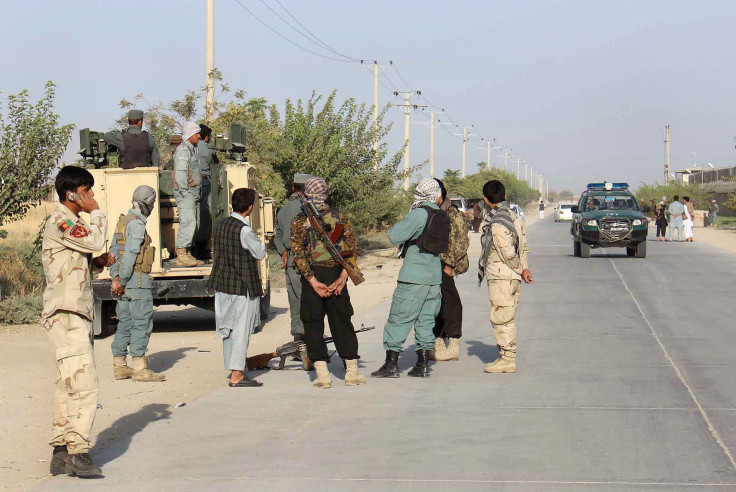US Conducts More Airstrikes On Kunduz As Afghan Forces Struggle To Retake City From Taliban

The U.S. military conducted two more airstrikes overnight Tuesday on the northern Afghan city of Kunduz that was seized by Taliban militants this week. Afghan security forces are struggling to retake Kunduz, 108 miles north of Kabul, as the insurgents widen their offensive.
Col. Brian Tribus, a U.S. Army spokesman, said that coalition advisers were at the scene Wednesday "in the Kunduz area advising Afghan security forces," the Associated Press reported. Heavy fighting also reportedly took place for control of the airport, in the city’s outskirts, where hundreds of Afghan forces and at least as many civilians had retreated.
NATO special forces, comprising British and German troops, were on the ground to assist Afghan forces, a Western military source told AFP on condition of anonymity.
The U.S. military had “conducted an airstrike in the vicinity of the Kunduz airport at approximately 11.30 p.m. local time, 29 September, against individuals threatening the force,” Tribus reportedly confirmed.
The Taliban’s victory in Kunduz has raised questions over the readiness of the country’s Western-trained security forces. On Wednesday, U.S. military commanders said they want to keep at least a few thousand American troops in Afghanistan beyond 2016 amid the fragile security situation in the country.
"The Taliban have laid landmines and booby traps around Kunduz, slowing the movement of convoys of Afghan army reinforcements driving to the city," an Afghan security official told Agence France-Presse.
Afghan authorities reportedly claimed that over 100 insurgents, including at least three Arabs, had been killed. The ministry of defense said 17 Afghan troops had also died during operations to wrest control back from the Taliban.
The fall of Kunduz is considered a great propaganda victory for the Taliban who were ousted from power in 2001.
Taliban's new leader, Mullah Akhtar Mansoor, said the government should admit defeat. Afghan President Ashraf Ghani, who completed his first year in office Tuesday, reportedly said that "progress" was being made in recapturing Kunduz, but security forces had been facing trouble as the Taliban used civilians as human shields.
“I am deeply concerned about the situation in Kunduz following the Taliban’s attack on the city,” Nicholas Haysom, the United Nations’ chief in Afghanistan, said, according to the Guardian. “The reports of extrajudicial executions, including of healthcare workers, abductions, denial of medical care and restrictions on movement out of the city are particularly disturbing.”
© Copyright IBTimes 2024. All rights reserved.











